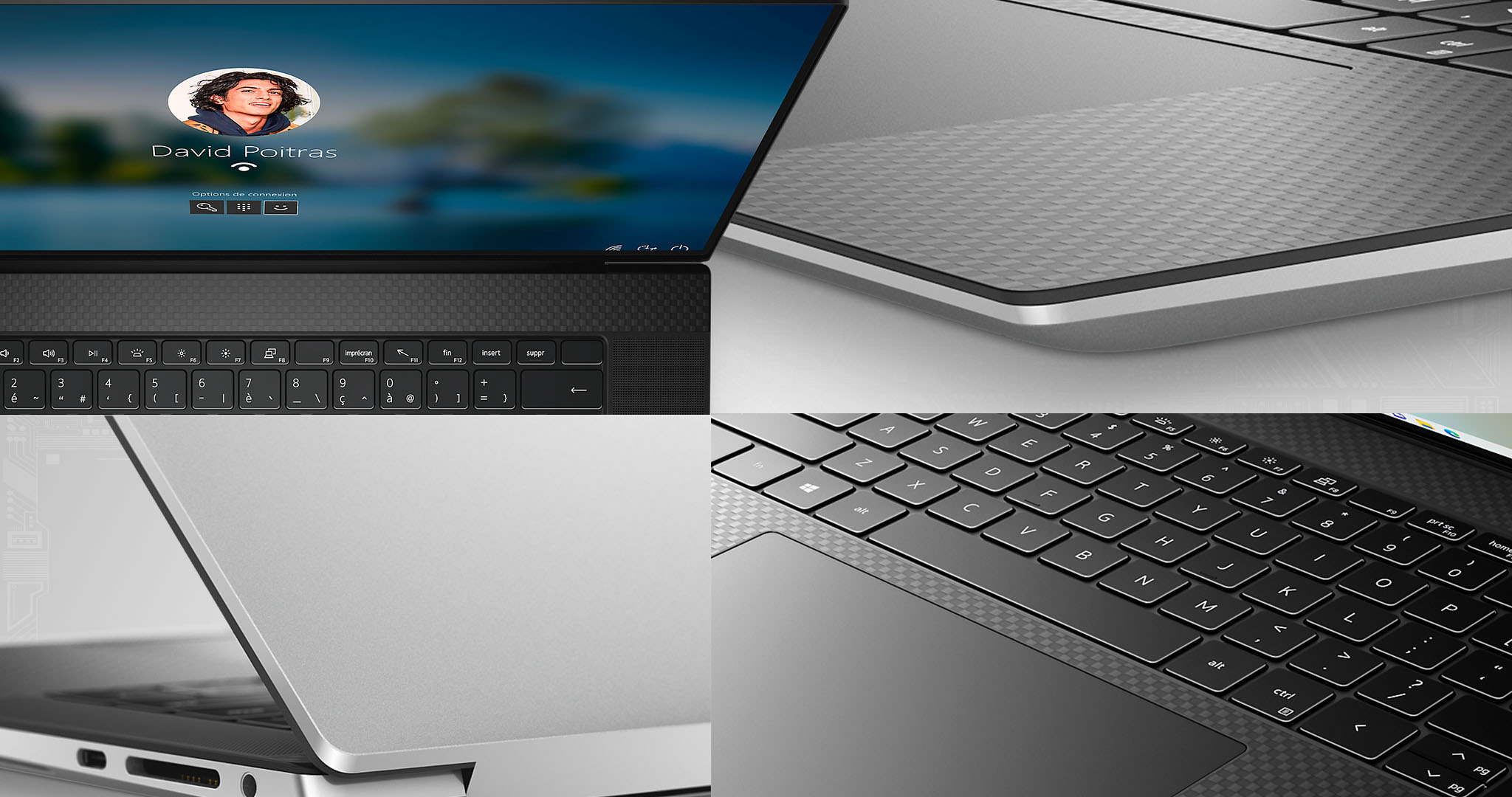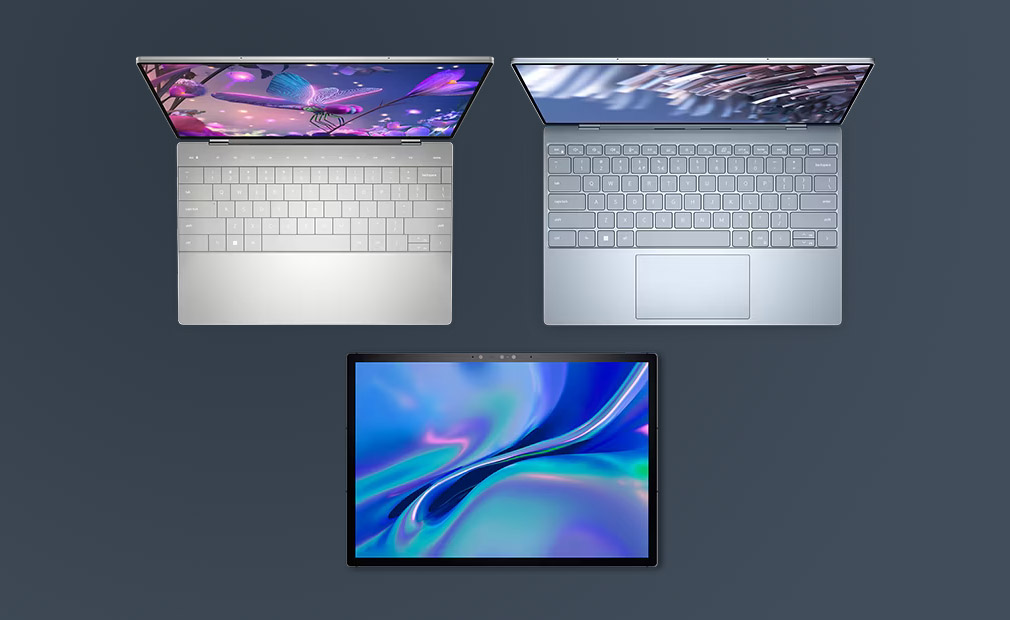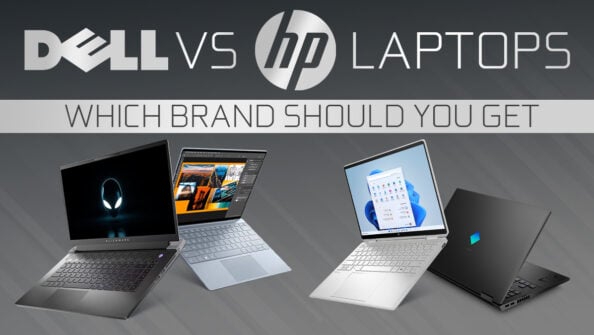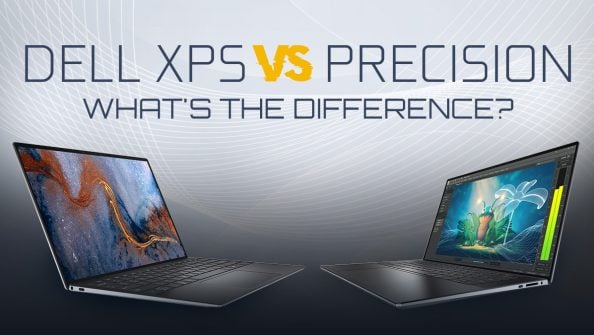TABLE OF CONTENTS
Dell is, without a shadow of a doubt, one of the most revered OEMs out there. In fact, it’s been in third place market share-wise for well over a decade. And, needless to say, its laptops are some of the finest and most alluring money can buy.
They are often overpriced, though, and, sadly, Dell has gotten a lot of bad press for its quality control issues, so this topic of sorts isn’t exactly as simple or straightforward as one would expect.

Image Credit: Dell
The thing is, Dell’s laptops exude confidence. The best ones are incredibly well-built, they have solid port selections, enjoyable keyboards, and stellar displays as well.
Some of them are thin and light and, as such, geared towards general productivity work. Others are thick, spec’d out behemoths that can easily chew through any task you might throw their way.
In other work: Dell has something for every kind of user.
Its offerings, however, aren’t quite as diverse as those from, say, ASUS, and they are, one could argue, targeted toward buyers with slightly loftier budgets — business users, creatives, and enterprises both large and small.
The biggest problem, however, lies not in their MSRPs or their price-to-performance ratios but rather in the sheer number of QC issues users have reported over the years.
The internet is littered with horror stories, most of which are tied to stupendously expensive XPS models.
Case in point:
If we ignore this for the moment, we’d still have to argue that Dell’s offerings aren’t nearly as alluring as was the case just a couple of years ago.
For some users, its laptops are a tremendous boon; for others, they’re simply hard to recommend as there are numerous other options out there, most of which are better priced (and, in some cases, packed with more features).
Dell is pretty hard to beat in a couple of areas (build and display quality, to be more specific), but one could nonetheless argue that brands like Lenovo, HP, and ASUS offer a lot more “bang for the buck” — and, perhaps most surprisingly, a much shorter list of potential QC issues.
Which Dell Laptop Should You Buy?
That, as always, depends on your needs, preferences, and budget.
Generally speaking, the XPS line warrants the most attention for its incredible build quality and overall polish, with Latitude models sort of being “reserved” for business users and enterprises.

Image Credit: Dell
Those that fall under the Precision umbrella are pretty much the quintessential mobile workstations and, as such, only cater to a very specific group of people.
If you want to experience the best Dell has to offer, you really ought to go with an appropriately spec’d XPS model — the XPS 13 Plus, for instance. Or, alternatively, one of the bigger XPS 15 variants, all of which come with beautiful, color-accurate displays and beefy internals.
They’re not appropriately cooled, though, so that’s definitely something worth keeping in mind if you’re a “power user.”
Additionally, the slightly more conventional XPS 13 also warrants a mention. It’s not as advanced or powerful as the Plus variant, but it’s nonetheless one of the best ultrabooks around.
If you’re interested in learning more about the aforementioned quality control issues, make sure to watch the following video from Just Josh:
Do Dell Laptops Have Quality Control Issues?
They do but, sadly, much of the same can be said for other OEMs as well.
There’s not a company out there with a spotless track record. QC issues, for one reason or another, simply cannot be avoided in this day and age. Laptops are manufactured by the dozen — hence the tremendous drop in quality control.
There’s also no use in going online and reading other people’s experiences as, frankly, you’re bound to get drowned in a metric ton of negativity and, subsequently, a kind of anxiety and dread you won’t find easy to solve.
Message boards and forums are littered with users who’ve had awful experiences, but we rarely, if ever, get to hear from those whose laptops happen to be running without a hitch.
After all, a satisfied customer is less likely to hop online and share thoughts and experiences.
The problem with Dell, though, is that its laptops often carry a stupendous price tag — and yet there’s very little (if any) failsafe in place to help you out should something happen to go awry.
Dell’s on-site support can, at times, come in clutch, but based on numerous user reports, it’s not exactly as top-tier as one would expect. To make things even worse, the quality of said support will vary wildly depending on your region (alongside numerous other factors). Some users have reported swift, timely repairs and top-notch service, whereas others have had nothing but horrific experiences.
As always, your mileage will vary (depending on your region and support “package”), but at least it’s not as one-sided as some message boards and user reports would lead you to believe.
A surprising number of users have had horrific quality control issues with their XPS laptops, most notably the 15” variants.
To make things even worse, people had to go through grueling RMA procedures which lasted for weeks if not months — despite the fact that they spent two or even three thousand dollars on what they believed was the “best Dell had to offer.”
These aren’t negligible issues, and they have affected everyone’s perception of Dell as a company.
The market is now more competitive than ever, and most of Dell’s competitors — one could easily argue — are in a much better position nowadays than they were just a few short years ago.
Some of the finest laptops on the market are still made by Dell, but they’re not as easy to recommend as one would expect, and that’s solely due to weird design choices and, by the looks of it, ample negligence when it comes to quality control and customer support.
Take the last two generations of the XPS 15, for example. Instead of redesigning the chassis and imbuing it with a more competent thermal solution, Dell opted to cut corners.
The result? Immense thermal throttling. A classic case of form over function, and yet the price tag is still as exorbitant as ever.
Conclusion — Are Dell Laptops Any Good?
They are. In fact, they’re pretty darn great.
Still, they’re not without their own laundry list of drawbacks and issues, and, depending on your region, they might be horrendously overpriced.
The oft-talked about quality control issues are also a factor. If there’s even the slightest chance of you ending up with a malfunctioning laptop, it’s hard if not nigh impossible to give out a recommendation.
Dell has some truly awe-inspiring laptops within its portfolio.
Beautiful, sleek, well-built machines that are designed to impress and, more often than not, deliver the kind of performance you’re after.
Those aforementioned issues, however, loom over Dell’s offerings and have, without a doubt, affected the way people perceive Dell as a company.
These problems are not as widespread as some would lead you to believe, but they’re nonetheless a lot more prevalent than what one could deem acceptable.
If tech reviewers and journalists have those issues (despite, more often than not, getting hand-picked review samples), then what can regular consumers expect?
As always, we suggest buying your laptop of choice from a reputable retailer like Amazon or Best Buy.
They have the best return policies imaginable; so, if you’re set on buying a Dell laptop and it happens to arrive with any kind of quirk or issue, you’d be able to ship it back and get a refund within a moment’s notice.
FAQ
Let’s go over a few potential questions you might have regarding this particular topic:
Are Dell Laptops Any Good?
Most of them are great if not even flat-out phenomenal.
Dell makes some of the best, most premium laptops around, and, needless to say, they’re both incredible to use and look at.
Some models combine the best of both worlds. Others favor form over function, but they’re still mighty alluring despite them favoring aesthetics over sheer functionality.
And, if you’re a business user or a professional in need of a workstation laptop, Dell’s Latitude and Precision lines are packed to the gills with mighty capable internals, all of which are designed to offer the kind of performance one needs for the most demanding of workloads.
Is Dell a Reputable Brand?
It is, generally speaking, but it has also been facing a lot of scrutiny over its quality control issues — issues which, perhaps surprisingly, are most prevalent with Dell’s very best and most expensive models.
And, frankly, it pains us to say it, as Dell’s laptops truly are spectacular in a myriad of different ways (the top-tier ones, at least).
Dell, too, offers extended warranties and “premium” support for business users, but there’ve been many instances where people didn’t receive what was promised — or they did but it wasn’t nearly as expedient and prompt as they had expected (or, rather, deserved).
Over to You
Have you ever used any of Dell’s laptops and, if so, what was that experience like?
Did you ever face any egregious quality control issues — or issues in general? Let us know in the comment section down below and, in case you need any help, head over to our forum and ask away!
![Is Dell a Good Laptop Brand? [2024 Update] Is Dell a Good Laptop Brand? [2024 Update]](https://www.cgdirector.com/wp-content/uploads/media/2023/08/Is-Dell-a-Good-Laptop-Brand-Twitter-1200x675.jpg)
![Lenovo vs. Dell Laptops: Which should you pick? [2024 Update] Lenovo vs. Dell Laptops: Which should you pick? [2024 Update]](https://www.cgdirector.com/wp-content/uploads/media/2023/03/Lenovo-vs.-Dell-Laptops-Which-is-the-Right-Pick-for-You-Twitter-594x335.jpg)




0 Comments